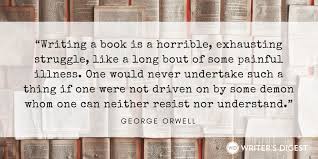
Hello everyone. We’re talking about quotes this week. First of all, I’m sorry about my absence the last two weeks; I have been up to my eyeballs in manuscripts. But a funny thing happened. Often when I’m editing a manuscript I come across an issue I’ve never dealt with before, but then it seems like I begin to see that issue in all the other manuscripts around the same time. It’s odd and unsettling sometimes. Especially when it corresponds to questions I get on the subject. I had put the questions aside when I got them, because I had little concrete knowledge on the subject of citing quotes and lyrics.
But recently, I had a book come across my desk that included lyrics to a song. Within the next month, my next three books all had quoted lyrics. I knew I needed to figure out what to do. From my limited knowledge, I believed that we only needed to cite any quoted lyrics in the back of the book and that would be sufficient.
Well, I didn’t know exactly how to format the correct citation in the back of the book, so I got on Google and followed a six-hour bunny trail to Copyright Wonderland. I discovered that no, you cannot just legally quote another book or song and cite the author/artist and book/album.
First Question: What do I have to do to quote someone else’s words in my book, like a song or poem? Not many words.
Answer: You must have permission.
Regarding song lyrics: Here’s the deal. Song titles and artist names are “fair use,” meaning they are free to use without compensation paid to the original publisher. Giving credit is always good etiquette. Lyrics published before 1924 are considered “fair use” and are fine to use–they have entered the “public domain.” Anything produced from 1924 till now is copyrighted and must receive permission from the publisher for use. Attribution (citing the info) is not permission.
There is never a case where it is okay to use lyrics without permission from the publisher. The thing is, you can request permission, and they may answer, they may not. And their answer may be “no.” If their answer is “yes,” they are allowed to charge you any figure they desire, per character, for the quote you’re using–it could be free, and it could plausibly be one million dollars. Permission does not come quickly (minimum 4-6 weeks), and if the author goes forward with publication before gaining the permission, they are in copyright infringement and if permission is denied, all copies of your book must be destroyed.
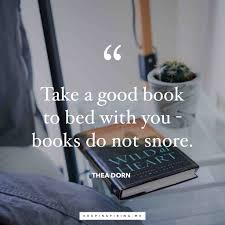
To get permission, one must find out who the original producer of the music is–not the artist and not the music company, but the publisher/producer–then go to their website where you can often find online forms for requesting permission to quote content (Search for licenses and permissions). You fill it out and wait, then pay what they tell you, or decide to leave it out.
Here’s another point, copyright does not have a minimum number of words—you need permission for as little as one lyric line, or even a special word. This means that in addition to the ban on quoting verbatim, it is also infringement to give an “almost” quote by altering a few words, nor can you break up the lyrics and scramble them. It’s all covered by copyright.
Here’s the thing. As the author it is YOUR responsibility to do this and to pay for the licensing fees. Didn’t know that? Standard publishing contracts (most small publishers included) state that the work you (the author) gave the publisher was original and does not violate anyone’s copyright, and that if you are sued personally, the publisher will not be held responsible.
Your small publisher may not even realize the strict legality of this. However, you as the author need to know what your options are and you deserve to know it is your responsibility now, rather than when you’re sued and think the publisher exists to protect you. I don’t want to be subversive, I am on the publishers side and the author’s side on this one. I get it. But since I know this, I feel I’m obligated to make sure you know it, too.

You can give the song artist’s name in your book and say the character was “listening to (song title) by (artist),” and that they sang along, or that they bopped to the beat, or that they listened to the part about a wise old man and it made them think of their father, or whatever the point of the quote was.
If I were you, I’d make up new lyrics to a pretend song, or give the name of the artist and title and explain why that song is important. Leaving lyrics as they are is copyright infringement as long as you don’t have specific permission. If you do happen to have permission, be sure to cite it at the back of the book.
As an author who sometimes finds inspiration in lyrics especially, or poetry–it sucks, I know. But don’t assume you will get away with it. Producers have people and programs that hunt for copyright infringement all the time, and if you are sued, your publisher has no responsibility to back you or pay for any legal fees they may encounter as a result. That goes to you.
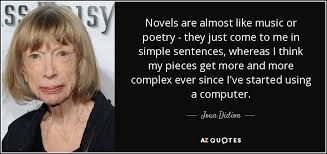
Book titles are also “fair use.” In fact, titles of: songs, movies, books, albums and articles are all considered fair use. What is “fair use?”
“Fair use”: Any quoted copy of copyrighted material for a limited purpose, like a commentary, criticism, news reporting, education, or parody. “Fair use” also includes “transformative” use, meaning there is substantial NEW content, or you’ve changed the interpretation or expression so that the work now has new meaning, or intends to reach a different audience than the original use.
Copyright protects a created work for the life of the author, plus seventy years–equalling about a hundred years for most authors. A professional study has shown that the average age of first-time published authors is thirty-six.
If you are caught, the copyright police does look at the purpose and character of use. Is it educational? Are you copying facts for research? Reusing factual information is seen differently and more likely to be accepted for use than artistic content. Needing Anne Rice’s quote in your book for mood and to sell more copies might get a frown.
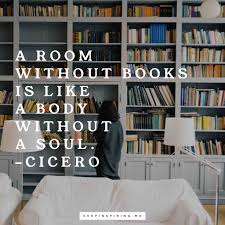
Okay, so what CAN I quote? Surely not everything is protected, right? I’ve seen other authors do it all the time. Do they all have permission? What is NOT covered by copyright?
Ideas cannot be copyrighted, neither can titles, names, real-world events, objective info, raw data, nor slogans. This includes popular phrases–which means if the song lyric is a commonly used phrase, like, “How’s it going,” or “I don’t know,” or “I guess so,” you can use it. Authors/artists can’t copyright a widely used phrase. If the work’s copyright has expired, it is considered in the public domain, but that’s anything before 1924. If the document was made by the U.S. Federal Government, it is usually fair use.
Another thing the copyright cops will take into consideration if you get pulled into court is the amount of the quotation you used, relevant to the size of the work as a whole–the less you quote, the better, in terms of calling it fair use. They also examine the perceived effect that the quote has/ would have on the value of your novel. Is your entire book based around one quote by Pearl Jam? Does the quote float your whole story? Or is it a minor mood-setting quote? I mean, without permission, it’s all wrong, but in judgement, there are shades of gray.
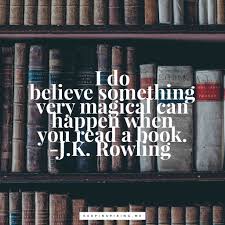
Next question: So are copyrights the only thing I have to worry about when quoting someone else’s work?
Answer: Nope. Don’t forget to check for a “trademark,” especially if it’s something hip and current.
Some works–though many also have a copyright–are protected with a trademark. In that case you must get permission for both. Like copyrights, trademarks are a form of artist protection, but whereas copyright doesn’t cover: names, titles, short phrases, and slogans–all those items CAN be trademarked.
Again, those commonly used phrases cannot be trademarked, either. Taylor Swift has been working to trademark, among her songs, T-shirts and other apparel–that will be up to her standards and identify her merchandise as Taylor-approved. This is the point of the trademark: To give credit to the creator and maintain a level of product that others cannot cheaply copy and profit from using the creator’s product’s name, AND to give the artist the right to legal compensation for their work. It entitles them to legally put a stop to anyone else’s sale of products copying their words, lyrics, slogan, symbol, or catchphrase.
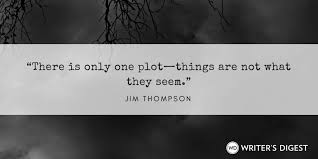
This actually caused a problem for Disney–the owner of the trademarked phrase, “Hakuna Matata,” in 2018. Although much of the world is familiar with “Hakuna Matata” from Disney’s movie The Lion King, which popularized the phrase, it is actually a very commonly-used saying in Swahili and the media in Kenya reported an outcry from the people of East Africa. Though at that point, the trademark had been in place for twenty-four years.
Tens of thousands of people petitioned the trademark, which means “No worries,” to force Disney to drop their right to the saying. Crying out against cultural appropriation, the petition says, “The term ‘Hakuna Matata’ is not a Disney creation, hence not an infringement on intellectual or creative property, but an assault on the Swahili people and Africa as a whole.”
After the Kenyan newspaper claimed, “pilferage of African culture over the years, through the use of intellectual property rights,” the uproar grew louder.
“Disney’s registration for ‘Hakuna Matata,’ which was filed in 1994, has never and will not prevent individuals from using the phrase,” Disney’s press department said in response. “Indeed, for many years, trademarks have been registered for popular words and phrases such as ‘Yahoo!’, ‘Vaya con Dios (Go with God),’ ‘Merry Christmas’ and ‘Seasons Greetings’ without impeding the use of these phrases and words in any cultural way.”

Similarly, if the owner has trademarked an image like an apple, a swoosh, or the font of their word or phrase, other companies or entities are banned from the use of the word or symbol with the intention of misleading consumers to believe that it is the same product as the original trademark.
Stop. Read that again. It’s not saying you can’t have an apple as your logo–but if you have a solid apple with one small leaf and one semi-circle bite out of the right side, it better look like your version, and you’d better not be planning to sell the item as if it were an actual “Apple product.”
In reality, people pirate Disney’s trademark all the time. But that’s their battle. Do they sue everyone and end up looking like the bad guy? That’s bad publicity. Glad it’s not my job.
So why do I tell you all this? Because you need to know. As an author you are LIABLE for using any published words not your own. And you need to know your responsibility for using those words, as well as the consequences for doing it wrong. I can’t–in good faith–know this and not share it with you. If there’s even a question of copyright infringement, err on the side of caution and leave it out. Get creative. You’re an author–make something even better.
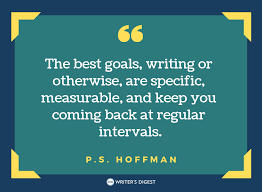
Just for fun– See how familiar you are with these other popular trademarked phrases (notice the couple that are only one word):
“Just do it”–Nike
“Nothing is impossible”–Adidas
“Things Fall Apart”–50 Cent
“This sick beat”–Taylor Swift–Other examples: “Cause We Never Go Out of Style,” “Party Like It’s 1989,” and “Nice to Meet You, Where You Been?”
“You’re fired”–Donald Trump
“That’s Hot”–Paris Hilton
“Let’s Roll”–Heroic Choices (If you don’t know this one, look it up.)
“Bam!”–Emeril Lagasse
“Ancient Chinese Secret”–Calgon
“I pity the fool”–Mr. T
“Bananas”–Rachel Zoe
“Hasta la vista, baby”–B.J. Alan Company
“Let’s get ready to rumble”–Michael Buffer
“Jeah”–Ryan Lochte
“Three-Peat”–Pat Riley
“Linsanity”–Jeremy Lin
“You cannot be serious”–John McEnroe
“Tebowing”–Tim Tebow
“We have the meats”–Arby’s
“The King of Beers”–Budweiser
“Goodnight my sweet Anna baby”–Larry Birkhead

Last question: So do authors automatically hold the copyright over their writing?
Answer: No.
Wait. What? I thought all authors owned their own copyright and did since creation?
Yeah, me too. But guess what else I didn’t realize? That same contract you signed to get a traditional publishing deal, either licenses or exclusively sells your copyright to the publisher. You do not own your copyright if you’ve sold it to a publisher. A few of you may need to take a breather. I understand. Grab a fresh cup and come back, I’ll tell you more…
Freelancers–if you are considered “work for hire,” as many freelance writers are, you do not own the copyright on your words there, either. The company who employed you for your services owns the copyright on the work as the publisher.
Some publishing contracts give the publisher rights over the book for the author’s life plus seventy years. Pay attention here– Copyright gives the rights holder exclusive rights to:
- reproduce or copy the work
- distribute the work by giving, lending, or selling it
- produce other writing based on the work
- for audiobooks, to perform the work digitally

What does that mean for me, though?
Are you saying I don’t have a copyright?
Let’s be clear, the creator of a work owns its copyright for their lifetime plus seventy years. Unless you give, assign, or sell those rights to a publisher, or you were a “work for hire.” These rights can be split up a number of ways: exclusive, non-exclusive, limited, temporary, etc. If you have a publisher, however, chances are great that you do not own the copyright to your book.
Which means you could receive a “take down” notice from your publisher (or other copyright owner) if you:
*reuse or copy the work in other pieces that you write
*post the work on your website
*post excerpts on social media or sites like Wattpad
*copy or reuse illustrations or maps in other works
*share it with other authors or provide copies for a workshop
*sell books at a book fair, holiday fair, or other book-related sale
What is a “take down” notice? It is the first step in a publisher telling you to cease and desist with your activity as it is copyright infringement. As it turns out: You may be violating the copyright, and you may not. There are computer programs that some publishers use to crawl the internet, searching for content that violates their copyright. If your book comes up, it is your legal responsibility to prove your own right to use the work in the manner you are.

You do not need to obtain a copyright before you publish. If you are going through a publisher, they will handle your copyright paperwork, there’s nothing special you need to do. If you haven’t been published, your book automatically belongs to you exclusively, and if you self-publish, you will get a copyright through that. But if you desire to remain unpublished, and yet retain legal copyrights for your work on your own, go to: Copyright.gov portal where you will be charged $85 to complete the registration.
Another resource is: The Writer’s Legal Guide . You may also look for information from the Authors Guild, the National Writers Union, or a local chapter of Volunteer Lawyers for the Arts.
In the event that you DO obtain permission, how do you cite it? Generally with the MLA citation format. First, you’ll want to alphabetize your list, no matter where the lyrics are in the book. The formula goes like this:
- Artist’s last name[comma] First name[period]—[quotations]Title[period][quotations]—[Italics] Album title[period]—Production company (that’s the album producer)[comma] XXXX (year album was released)[period]—Form of song (i.e. CD, Cassette, Record, etc.)[period].
Example:
- Lavigne, Avril. “Girlfriend.” Best Damn Thing. Columbia and RCA Records, 2007. CD.

Do you feel more informed now about copyright and your courses of action? I hope you’re enjoying this Q&A series. If you have a literary question, feel free to comment and thank you for using the contact form to send those in! Until next weekend!
~jenn

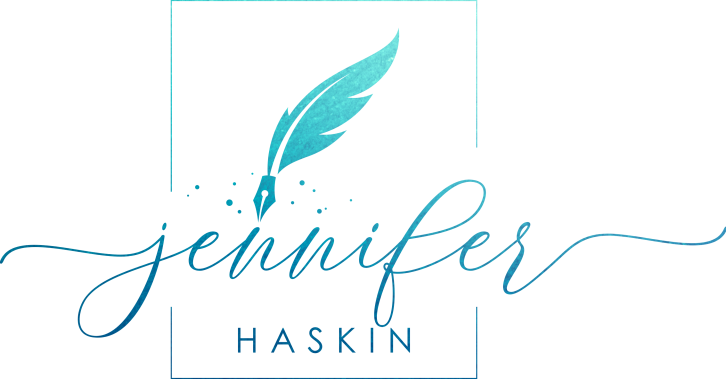
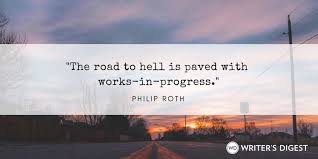

Thank you for this valuable info! I’m working on a short story now inspired by (NOT ‘based on,’ mind you!) a song. I wasn’t sure what the legalities were for fiction-writing but this really helped clear things up.
LikeLiked by 1 person
Great Miriam! So glad it helped! As long as you talk “about” the song and its effect on your characters, you’ll be fine–just use the title and artist names, and don’t quote the verses. If you have any more questions, let me know!
LikeLike
Are the names of bars or restaurants copyrighted?
LikeLiked by 1 person
They are generally trademarked, rather than copyrighted. This is what I found. “Essentially, a copyright gives you the ability to control how your work is used, distributed, performed, and displayed. Since restaurant/bar names aren’t creative works, you don’t need to worry about knowing how to copyright your restaurant’s name.” –From: https://www.webstaurantstore.com/blog/1912/how-to-trademark-a-restaurant-name.html#:~:text=Essentially%2C%20a%20copyright%20gives%20you,to%20copyright%20your%20restaurant's%20name.
LikeLiked by 1 person
Very helpful!
Thank you!
LikeLike
I’m wondering about quoting a line, or a few lines from a book in my song? I know you can’t directly quote a song in a book, but what about in the opposite direction?
LikeLike
Hi Michael. Good question. From what I know, as long as you cite the author, it should be okay, but when in doubt, on the book’s copyright page, there should be an email to contact if you have any questions. It wouldn’t hurt to drop an email and let the author know you’d like to use a quote and plan to cite them on the lyrics page. Most likely, they will be flattered. And if they have any issues with it, they will let you know. They could require that you buy the rights for that quote (legally, they can set any price), at which time you can buy it or opt for slightly different lyrics. Good luck with your music!!
LikeLike
Thank you, Jenn!
LikeLike